8 June 2015. Mario Castelnuovo-Tedesco, Leaves of Grass and Shakespeare Sonnets: A Conference and a Recital in Florence.
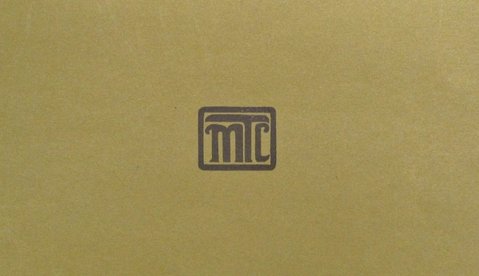
ICAMus, in an international collaboration with Oberlin Conservatory of Music, The University of Florence, and Lyceum Club Internazionale, presents Firenze e altri orizzonti / Florence and Further Horizons, a conference and a musical program focused on Florence-born American composer Mario Castelnuovo-Tedesco, and his unpublished Leaves of Grass Song Cycle and Shakespeare Sonnets. A Conference and a Recital take place in Florence on June 8th, 2015, 4:00pm-8:00pm, at the Lyceum, Via degli Alfani 48.
Detailed Recital Program, as part of the Mario Castelnuovo-Tedesco ICAMus Events in Florence on June 8th, 2015:
Salvatore Champagne, tenor ~ Howard Lubin, piano
MARIO CASTELNUOVO-TEDESCO (1895-1968)
Shakespeare Sonnets: Selection (William Shakespeare)
Opus 125; Composed: Beverly Hills, CA, 1944-1945, 1947, 1963; Unpublished Manuscript; Mario Castelnuovo-Tedesco Collection, The Library of Congress Music Division, Washington, DC, USA.
Sonnet CIV. To me fair friend, you never can be old.
Sonnet XCVII. How like a winter hath my absence been.
Sonnet LXXIII. That time of year thou may’st in me behold.
Sonnet LIII. What is your substance, whereof are you made.
Sonnet CIX. O never say that I was false of heart.
Sonnet XVIII. Shall I compare thee to a summer’s day?
Sonnet CII. My love is strengthen’d, though more weak in seeming.
Sonnet CVI. When in the chronicle of wasted time.
Sonnet LXXI. No longer mourn for me when I am dead.
Sonnet CXXVIII. How oft, when thou, my music, music play’st.
* * *
Leaves of Grass (Walt Whitman)
10-Song Cycle Opus. 89b; Composed: Florence & other nearby locations in Tuscany, 1936; Unpublished Manuscript; Mario Castelnuovo-Tedesco Collection, The Library of Congress Music Division, Washington, DC, USA.
I. What think you I take my pen in hand to record?
II. I dream’d in a dream.
III. Sometimes with one I love.
IV. We two boys together clinging.
V. Are you the new person drawn toward me?
VI. When I peruse the conquer’d fame.
VII. A glimpse through an interstice caught.
VIII. This moment yearning and thoughtful.
IX. Trickle drops!
X. And now gentlemen.
We also invite you to explore the ICAMus 2013 events at the Library of Congress and at the Embassy of Italy in Washington, DC, where Castelnuovo-Tedesco's both unpublished and published settings of American poets (Walt Whitman, Edna St. Vincent Millay, Arthur Guiterman) were performed by tenor Salvatore Champagne and pianist Howard Lubin, with lectures by Aloma Bardi (October 22-23, 2013).
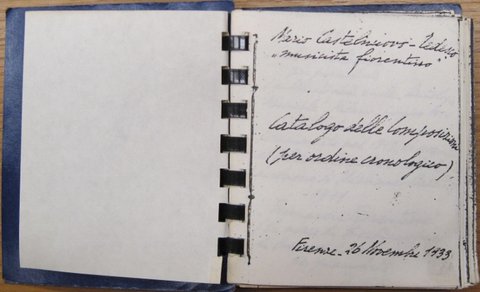
Mario Castelnuovo-Tedesco Conference Announcement.
In collaboration with:
Oberlin Conservatory of Music,
The University of Florence, Dipartimento di Storia, Archeologia, Geografia, Arte e Spettacolo (SAGAS) – Dottorato interuniversitario Pegaso - Regione Toscana in Storia delle Arti e Storia dello Spettacolo,
and Lyceum Club Internazionale di Firenze - Sezione Musica,
ICAMus announces a Conference focused on Florence-born American composer Mario Castelnuovo-Tedesco (1895-1968) and his unpublished Leaves of Grass Song Cycle and Shakespeare Sonnets.
Speakers: Aloma Bardi, Mila De Santis, Eleonora Negri, Daniela Tortora.
Chair: Luciano Alberti.
The Castelnuovo-Tedesco Conference takes place in Florence on June 8th, 2015, 4:00pm-6:00pm, at the Lyceum Club Internazionale di Firenze, Palazzo Giugni, Via degli Alfani 48.
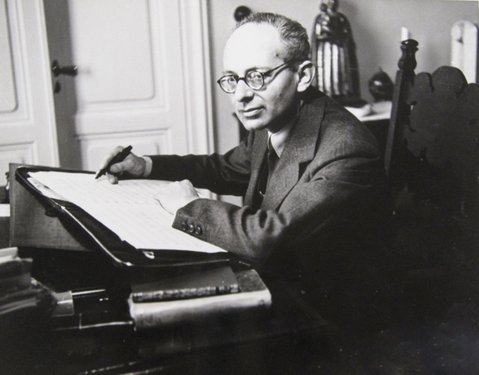
Mario Castelnuovo-Tedesco Conference Program.
MARIO CASTELNUOVO-TEDESCO
FIRENZE E ALTRI ORIZZONTI / FLORENCE AND FURTHER HORIZONS
LUCIANO ALBERTI
Chair
L’altro Novecento di Mario Castelnuovo-Tedesco: uno sguardo al catalogo.
Mario Castelnuovo-Tedesco al Lyceum Club Internazionale di Firenze.
“La mia espressione più schietta”. Mario Castelnuovo-Tedesco e la lirica da camera.
Orizzonti americani di Mario Castelnuovo-Tedesco. Gli inediti Whitman Songs e Shakespeare Sonnets.
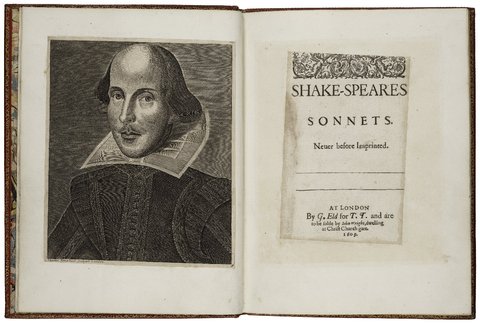
Mario Castelnuovo-Tedesco Recital Texts.
TEXTS
Shakespeare Sonnets: Selection (William Shakespeare)
Sonnet CIV.
To me fair friend, you never can be old,
For as you were when first your eye I eyed,
Such seems your beauty still. Three winters cold
Have from the forests shook three summers’ pride,
Three beauteous springs to yellow autumn turn’d
In process of the seasons have I seen,
Three April perfumes in three hot Junes burn’d,
Since first I saw you fresh, which yet are green.
Ah! yet doth beauty, like a dial-hand,
Steal from his figure and no pace perceived;
So your sweet hue, which methinks still doth stand,
Hath motion and mine eye may be deceived:
For fear of which, hear this, thou age unbred;
Ere you were born was beauty’s summer dead.
Sonnet XCVII.
How like a winter hath my absence been
From thee, the pleasure of the fleeting year!
What freezings have I felt, what dark days seen!
What old December’s bareness every where!
And yet this time removed was summer’s time,
The teeming autumn, big with rich increase,
Bearing the wanton burden of the prime,
Like widow’d wombs after their lords’ decease:
Yet this abundant issue seem’d to me
But hope of orphans and unfather'd fruit;
For summer and his pleasures wait on thee,
And, thou away, the very birds are mute;
Or, if they sing, ‘tis with so dull a cheer
That leaves look pale, dreading the winter’s near.
Sonnet LXXIII.
That time of year thou may’st in me behold
When yellow leaves, or few, or none, do hang
Upon those boughs which shake against the cold,
Bare ruin’d choirs, where late the sweet birds sang.
In me thou see’st the twilight of such day
As after sunset fadeth in the west,
Which by and by black night doth take away,
Death’s second self, that seals up all in rest.
In me thou see’st the glowing of such fire
That on the ashes of his youth doth lie,
As the death-bed whereon it must expire
Consumed with that which it was nourish’d by.
This thou perceiv’st, which makes thy love more strong,
To love that well which thou must leave ere long.
Sonnet LIII.
What is your substance, whereof are you made,
That millions of strange shadows on you tend?
Since every one hath, every one, one shade,
And you, but one, can every shadow lend.
Describe Adonis, and the counterfeit
Is poorly imitated after you;
On Helen’s cheek all art of beauty set,
And you in Grecian tires are painted new:
Speak of the spring and foison of the year;
The one doth shadow of your beauty show,
The other as your bounty doth appear;
And you in every blessed shape we know.
In all external grace you have some part,
But you like none, none you, for constant heart.
Sonnet CIX.
O never say that I was false of heart,
Though absence seems my flame to qualify.
As easy might I from myself depart
As from my soul, which in thy breast doth lie:
That is my home of love: if I have ranged,
Like him that travels I return again,
Just to the time, not with the time exchanged,
So that myself bring water for my stain.
Never believe, though in my nature reign’d
All frailties that besiege all kind of blood,
That it could so prepost’rously be stain’d,
To leave for nothing all thy sum of good;
For nothing this wide universe I call,
Save thou, my rose; in it thou art my all.
Sonnet XVIII.
Shall I compare thee to a summer’s day?
Thou art more lovely and more temperate:
Rough winds do shake the darling buds of May,
And summer’s lease hath all too short a date:
Sometime too hot the eye of heaven shines,
And often is his gold complexion dimm’d;
And every fair from fair sometime declines,
By chance, or nature’s changing course, untrimm’d;
But thy eternal summer shall not fade,
Nor lose possession of that fair thou owest;
Nor shall Death brag thou wander’st in his shade,
When in eternal lines to time thou growest;
So long as men can breathe or eyes can see,
So long lives this, and this gives life to thee.
Sonnet CII.
My love is strengthen’d, though more weak in seeming;
I love not less, though less the show appear:
That love is merchandised whose rich esteeming
The owner’s tongue doth publish every where.
Our love was new and that but in the spring
When I was wont to greet it with my lays,
As Philomel in summer’s front doth sing
And stops her pipe in growth of riper days:
Not that the summer is less pleasant now
Than when her mournful hymns did hush the night,
But that wild music burthens every bough
And sweets grown common lose their dear delight.
Therefore like her I sometime hold my tongue,
Because I would not dull you with my song.
Sonnet CVI.
When in the chronicle of wasted time
I see descriptions of the fairest wights,
And beauty making beautiful old rime
In praise of ladies dead and lovely knights,
Then, in the blazon of sweet beauty’s best,
Of hand, of foot, of lip, of eye, of brow,
I see their antique pen would have exprest
Even such a beauty as you master now.
So all their praises are but prophecies
Of this our time, all you prefiguring;
And, for they look’d but with divining eyes,
They had not skill enough your worth to sing:
For we, which now behold these present days,
Have eyes to wonder, but lack tongues to praise.
Sonnet LXXI.
No longer mourn for me when I am dead
Then you shall hear the surly sullen bell
Give warning to the world that I am fled
From this vile world, with vilest worms to dwell:
Nay, if you read this line, remember not
The hand that writ it; for I love you so
That I in your sweet thoughts would be forgot
If thinking on me then should make you woe.
O, if, I say, you look upon this verse
When I perhaps compounded am with clay,
Do not so much as my poor name rehearse.
But let your love even with my life decay,
Lest the wise world should look into your moan
And mock you with me after I am gone.
Sonnet CXXVIII.
How oft, when thou, my music, music play’st,
Upon that blessed wood whose motion sounds
With thy sweet fingers, when thou gently sway’st
The wiry concord that mine ear confounds,
Do I envy those jacks that nimble leap
To kiss the tender inward of thy hand,
Whilst my poor lips, which should that harvest reap,
At the wood’s boldness by thee blushing stand!
To be so tickled, they would change their state
And situation with those dancing chips,
O’er whom thy fingers walk with gentle gait,
Making dead wood more blest than living lips.
Since saucy jacks so happy are in this,
Give them thy fingers, me thy lips to kiss.
Leaves of Grass (Walt Whitman)
I.
What think you I take my pen in hand to record?
The battle-ship, perfect-model’d, majestic, that I saw pass the
offing to-day under full sail?
The splendors of the past day? or the splendor of the night that
envelops me?
Or the vaunted glory and growth of the great city spread around
me? – no;
But I record of two simple men I saw to-day on the pier in the
midst of the crowd, parting the parting of dear friends,
The one to remain hung on the other’s neck and passionately
kiss’ed him
While the one to depart tightly prest the one to remain in his arms.
II.
I dream’d in a dream I saw a city invincible to the attacks of
the whole of the rest of the earth,
I dream’d that was the new city of Friends,
Nothing was greater there than the quality of robust love, it led
the rest,
It was seen every hour in the actions of the men of that city,
And in all their looks and words.
III.
Sometimes with one I love I fill myself with rage for fear I
effuse unreturn’d love,
But now I think there is no unreturn’d love, the pay is certain
one way or another,
(I loved a certain person ardently and my love was not return’d,
Yet out of that I have written these songs.)
IV.
We two boys together clinging,
One the other never leaving,
Up and down the roads going, North and South excursions making,
Power enjoying, elbows stretching, fingers clutching,
Arm’d and fearless, eating, drinking, sleeping, loving,
No law less than ourselves owning, sailing soldiering, thieving,
threatening,
Misers, menials, priests alarming, air breathing, water drinking,
On the turf or the sea-beach dancing,
Cities wrenching, ease scorning, statutes mocking, feebleness
chasing
Fulfilling our foray.
V.
Are you the new person drawn toward me?
To begin with take warning, I am surely far different from what
you suppose;
Do you suppose you will find in me your ideal?
Do you think it so easy to have me become your lover?
Do you think the friendship of me would be unalloy’d satisfaction?
Do you think I am trusty and faithful?
Do you see no further than this façade, this smooth and tolerant
manner of me?
Do you suppose yourself advancing on real ground toward a
real heroic man?
Have you no thought O dreamer that it may be all maya,
illusion?
VI.
When I peruse the conquer’d fame of heroes and the victories
of mighty generals, I do not envy the generals,
Nor the President in his Presidency, nor the rich in his great
house.
But when I hear of the brotherhood of lovers, how it was with
them,
How through life, through dangers, odium, unchanging,
long and long,
How through youth and through middle and old age, how unfaltering,
how affectionate and faithful they were,
Then I am pensive – I hastily walk away fill’d with the bitterest
envy.
VII.
A glimpse through an interstice caught,
Of a crowd of workmen and drivers in a bar-room around the
stove late of a winter night, and I unremark’d seated in a
corner,
Of a youth who loves me and whom I love, silently approaching
and seating himself near, that he may hold me by the hand,
A long while amid the noises of coming and going, of drinking
and oath and smutty jest,
There we two, content, happy in being together, speaking little,
perhaps not a word.
VIII.
This moment yearning and thoughtful sitting alone,
It seems to me there are other men in other lands yearning
and thoughtful,
It seems to me I can look over and behold them in Germany,
Italy, France, Spain,
Or far, far away, in China or Russia or India, talking other
dialects,
And it seems to me if I could know those men I should become
attached to them as I do to men in my own lands
O I know we should be brethren and lovers,
O I know, I know I should be happy with them.
IX.
Trickle drops! my blue veins leaving!
O drops of me! trickle, slow drops,
Candid from me falling, drip, bleeding drops,
From wounds made to free you whence you were prison’d,
From my face, from my forehead and lips,
From my breast, from within where I was conceal’d, press forth
red drops, confession drops,
Stain every page, stain every song I sing, every word I say,
bloody drops,
Let them know your scarlet heat, let them glisten,
Saturate them with yourself all ashamed and wet,
Glow upon all I have written or shall write, bleeding drops,
Let it all be seen in your light, blushing drops.
X.
And now gentlemen,
A word I give to remain in your memories and minds,
As base and finale too for all metaphysics.
(So to the students the old professor,
At the close of his crowded course.)
Having studied the new and antique, the Greek and Germanic
systems,
Kant having studied and stated, Fichte and Schelling and Hegel,
Stated the lore of Plato, and Socrates greater than Plato,
And greater than Socrates sought and stated, Christ divine having
studied long.
I see reminiscent to-day those Greek and Germanic systems,
See the philosophies all, Christian churches and tenets see,
Yet underneath Socrates clearly see, and underneath Christ the
divine I see.
The dear love of man for his comrade, the attraction of friend
to friend,
Of the well-married husband and wife, of children and parents,
Of city for city and land for land.
Event Program and Song Texts (PDF).
PLEASE DOWNLOAD THE ICAMus PROGRAM AND SONG TEXTS (PDF) OF THE MARIO CASTELNUOVO-TEDESCO CONFERENCE AND CONCERT, FLORENCE, JUNE 8th, 2015.
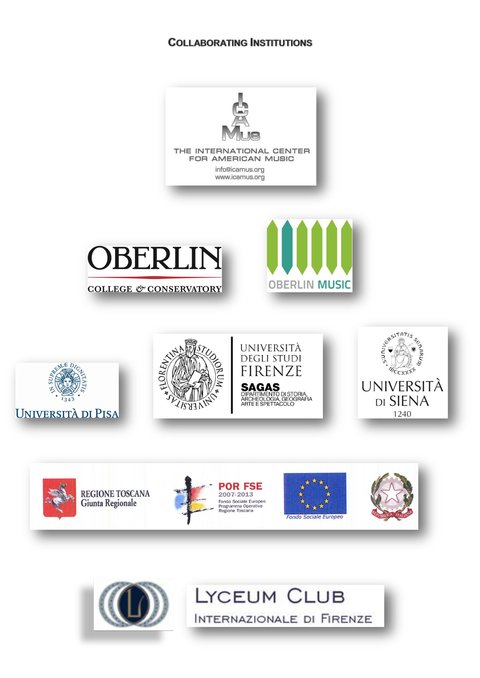
List of Institutions.
MARIO CASTELNUOVO-TEDESCO
FIRENZE E ALTRI ORIZZONTI / FLORENCE AND FURTHER HORIZONS
Florence, 8 June 2015
is a collaboration of the following institutions:
ICAMus - The International Center for American Music
Dipartimento di Storia, Archeologia, Geografia, Arte e Spettacolo (SAGAS) dell'Università degli Studi di Firenze – Dottorato interuniversitario Pegaso - Regione Toscana in Storia delle Arti e Storia dello Spettacolo
Lyceum Club Internazionale di Firenze - Sezione Musica
Oberlin College & Conservatory
Dedication, Acknowledgments, Credits.
ICAMus Dedicates This Project To The Memory Of
Lisbeth M. Stone Castelnuovo-Tedesco
(1936-2014)
Ms. Castelnuovo-Tedesco constantly granted support to the research, as well as permission to study and reproduce unpublished musical sources. She was married to Pietro Castelnuovo-Tedesco (1925-1998), the composer’s elder son. A noted Italian medieval art historian, for many years Dr. Lisbeth Castelnuovo-Tedesco was the copyright manager for Mario Castelnuovo-Tedesco’s music, and was committed to its promotion.
Special thanks to:
James Westby, longtime scholar of Castelnuovo-Tedesco’s biography, music, and catalogue of works, for his generous encouragement and support, and for providing constant historical advice and research materials.
The Castelnuovo-Tedesco family:
Diana Castelnuovo-Tedesco for her tireless assistance and encouragement with Castelnuovo-Tedesco’s music, and for facilitating the research.
Costanza Castelnuovo-Tedesco
Marinetta Piva
The Library of Congress Music Division, Susan Vita, Head; Katherine Rivers, special collections curator, for her invaluable expertise and generous help with the Castelnuovo-Tedesco Papers; the music librarians for their assistance with the published and unpublished sources of the Collection.
Salvatore Champagne, Howard Lubin, John Champagne, Mila De Santis, Eleonora Negri.
Dipartimento di Storia, Archeologia, Geografia, Arte e Spettacolo (SAGAS) dell'Università degli Studi di Firenze – Dottorato interuniversitario Pegaso - Regione Toscana in Storia delle Arti e Storia dello Spettacolo.
Lyceum Club Internazionale di Firenze - Sezione Musica.
Oberlin College & Conservatory.
Oberlin Music.
The research and coordination work for the Castelnuovo-Tedesco project has been carried out by Aloma Bardi for ICAMus.

